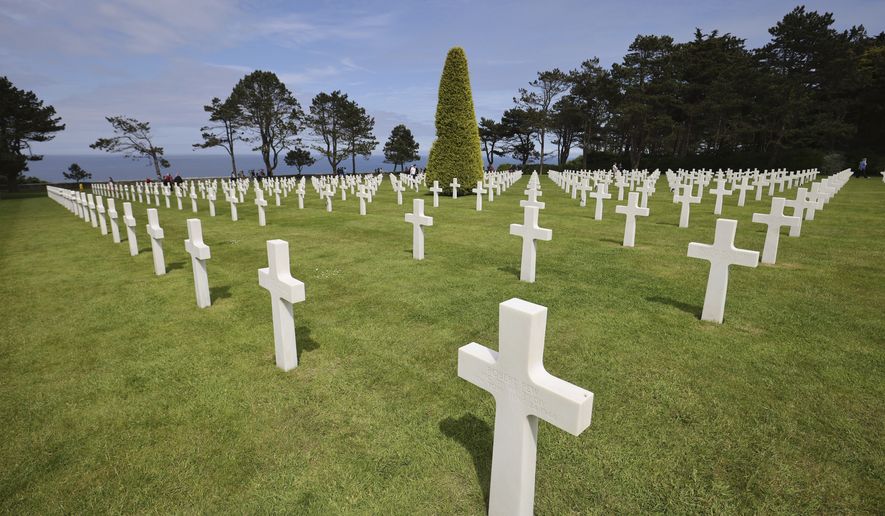The Allied invasion of Normandy is synonymous with heroism, a “great crusade” to end the Nazi tyranny over the peoples of Europe, as General Dwight D. Eisenhower put it in his order on June 6, 1944.
The 77th anniversary of D-Day evoked familiar remembrances honoring the thousands of American, British, Canadian and other soldiers who were killed storming the Normandy beaches to begin the liberation of France. After more than two months of ferocious combat, by late August, Allied columns were marching down the Champs-Élysées in a free Paris, celebrated by throngs of elated, relieved French citizens.
D-Day, therefore, holds an important place in our nation’s history as well as popular culture. The films “The Longest Day” (1962) and “Saving Private Ryan” (1998) reinforce memories of a righteous cause and selfless GIs. But neither the present-day ceremonies nor the movies tell the whole story.
On this episode of the History As It Happens podcast, University of Virginia historian William Hitchcock discusses the complicated legacy of the liberation for the liberated: the people of France, Belgium and the Netherlands who suffered death and dislocation as Allied forces fought Hitler’s Wehrmacht on the beaches, through hedgerows, and house by house in cities and towns.
In the first 24 hours of the D-Day invasion, about as many French civilians (~3,000) were killed as Allied soldiers. And from June 6 to Aug. 25, in the areas of Northern France that saw the most fighting, “about 20,000 French civilians paid for liberation with their lives,” said Mr. Hitchcock, the author of “The Bitter Road to Freedom: A New History of the Liberation of Europe.”
“The French people are grateful for what the Americans did, but they know their own towns and communities suffered a great deal. They would rather not emphasize that. They would rather emphasize the victory and the freedom that they gained,” Mr. Hitchcock said.
“In order to excavate the dark part of this story, you have to work against the popular desire not to emphasize those ugly chapters,” he added.
The deaths of civilians from Allied naval and air bombardment was not malevolent, but it was deliberate: “Allied leaders reluctantly accepted civilian deaths as part of the price to be paid for achieving victory,” Mr. Hitchcock wrote. The city of Caen, for instance, was obliterated in night after night of bomber attacks, killing thousands of civilians and leaving most of the city homeless.
By acknowledging the morally complicated nature of the liberation, U.S. leaders and citizens alike might be more careful today about invoking World War II to justify military strikes of dubious necessity, Mr. Hitchcock said, pointing to the statements made by U.S. officials in the run-up to the Iraq war in 2003.
“The American government’s position was essentially this is going to be a war of liberation, and wars of liberation are good things. They take away tyranny and bring democracy,” he said.
“I was perplexed that was the way the U.S. argued for the Iraq invasion, because my hunch was that the liberation they imagined in World War II was the liberation in the movies, rather than the liberation as it had actually happened.”
For more of historian William Hitchcock’s insights about the events of D-Day and how they are remembered, listen to this episode of History As It Happens.




